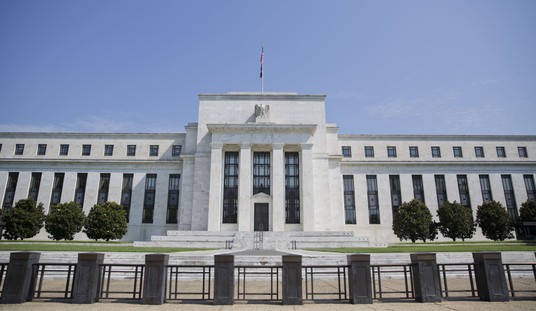Fox News’ ratings have been off the charts lately, and it has the White House to thank for that. After the administration decreed that Fox is not a “legitimate news organization” and that people shouldn’t watch it, more people than ever are tuning in to see Glenn Beck and Bill O’Reilly fight back.
But we shouldn’t be so entertained by this spectacle that we lose sight of why, at bottom, it is a disturbing one. It’s not just because, as many commentators have already observed, the president appears to be taking a page out of Nixon’s playbook. Fundamentally, it’s because the administration’s media war against Fox is but a minor display of the tremendous power the government has to stifle speech it views as illegitimate.
Much of this power is the result of long-standing “campaign finance” laws. These laws impose all sorts of restrictions on political speech, and it’s no coincidence that the most draconian of these restrictions are targeted at those who can speak the most effectively against a politician’s reelection. The most effective speakers tend to be those who can spend the most money. Corporations, many of which have lots of money, receive particularly harsh treatment under the law. Congress and state legislatures have as a practical matter banned corporations from speaking effectively about candidates by prohibiting them from spending any money for that purpose during election season.
Fox News is part of a corporation, as are most of the other major news outlets in the United States. Congress and state legislators have chosen to exempt them from the ban they have placed on other corporations’ political speech. However, under current Supreme Court precedent there’s no legal reason that lawmakers cannot take that exemption away. As a result, government officials are constantly tempted to manipulate the exemption and silence those who disagree with them.
With the Obama administration now arguing that Fox News is a partisan political group masked as a news outlet, expect politicians to call for the government to revoke the network’s media exemption and use the campaign finance laws to mute its speech. Other networks will be on notice that they could suffer the same fate if they are too critical of the administration.
Of course, if the media’s speech becomes illegitimate — and thus subject to restriction — when it turns critical, then the same is true for everyone else, including ordinary citizens. For example, take grassroots groups such as the tea party protesters, who were the bane of politicians’ existence this past summer. Looking for payback, politicians are now proposing to subject those groups to so-called “disclosure” laws that will discourage them from protesting by wrapping them up in miles and miles of red tape if they dare to continue to speak out.
Rather than admit they are trying to silence their most vocal critics, politicians say that the reason for new “disclosure” laws is that the public needs to know whether the protesters’ advocacy is actually “astroturf” that is being controlled by “special interests” — a term politicians use to describe anyone who disagrees with them. Never mind that real people are showing up at meetings and expressing their real views. Apparently, the fact that someone asked them to go there means we shouldn’t listen to them, and the public isn’t smart enough to hear their arguments and judge them on their merits.
In other words, politicians think they need to protect us by permitting “genuine” speech they like and restricting “fake” speech they don’t. Such Orwellian paternalism is not tolerated by the First Amendment. But it is at the core of the politicians’ endless quest to weed out speech they consider to be illegitimate.
Fortunately, it appears that the U.S. Supreme Court is about to remind politicians that free speech is a right, not a privilege subject to their mercurial whims. In the coming weeks, the Supreme Court will issue a decision in the case of Citizens United v. FEC. The Supreme Court is expected to hold that the government cannot prevent corporations from spending money to express their views about candidates. In doing so, the justices can make clear that the government cannot stifle the speech of any group — corporate or non-corporate — simply because it is forsaking “legitimacy” by not toeing the government line.
The good news for the administration? The Supreme Court’s decision should be of interest to all media, so the White House won’t have to tune into Fox News to hear all about it.









Join the conversation as a VIP Member